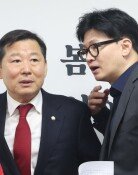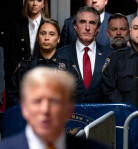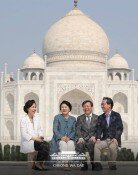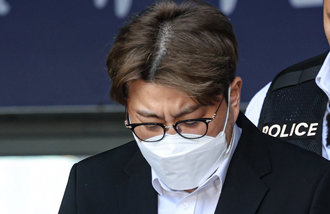U.S.-Korea Strategic Talks Scheduled
U.S.-Korea Strategic Talks Scheduled
Posted January. 05, 2006 03:00,
The first strategic ministerial dialogue between South Korea and the U.S. will be held in Washington in the mid-January.
This dialogue between the diplomatic heads of both countries, South Korean Foreign Minister Ban Ki-moon and U.S. Secretary of State Condoleezza Rice, is a high level regular forum launched after the ROK-U.S. summit talks held in Gyeongju, Gyeongbuk last November. The official title of the talks is the Strategic Consultation for Allied Partnership (SCAP).
Both countries are expected to hold a ministerial-level strategic dialogue once a year from now on to comprehensively discuss the mid- to long-term prospects of the future of the ROK-U.S. alliance and the security environment of Northeast Asia. In addition, both are planning to hold vice ministerial forums and working-level talks in order to implement the agenda negotiated or agreed upon at the strategic dialogue.
Specifically, the agenda will include talks on the transfer of U.S. Forces Korea camps, strategic flexibility, the redemption of Koreas Operational Control Authority, free trade agreement negotiations between Korea and the U.S., and other pending issues.
In addition to the ongoing struggle between Japan and China over sovereignty, Japans views toward its past history and other potential conflicts in Northeast Asia will top the agenda.
Government officials said on January 4, That the two countries are engaged in strategic dialogue is a symbolic gesture showing the extent of their alliance.
U.S. Ambassador to South Korea Alexander Vershbow said at a Korean-American Association seminar, It shows how strong Koreas status has become. So far, the U.S. had been engaged in ministerial strategic talks with Japan, Australia, and Saudi Arabia only.
At this strategic dialogue, it is reported that much focus will be put on measures to resume the six-party talks to resolve the North Korean nuclear issue, which has been deadlocked due to North Koreas supposed involvement in manufacturing counterfeit bills.
Despite tensions between the U.S. and North Korea over the issue of counterfeit money, it is expected that there will be a breakthrough in the six-party talks if things go smoothly because both have shown an unyielding commitment to comply with the joint declaration of the fourth six-party talks held last September. To that end, the South Korean government is planning to have in-depth discussion on making specific analysis into practice steps for the North Korean issue, including dialogue to normalize ties between North Korea and the U.S., and on measures to encourage the North to come to the table by separating the nuclear issue and the counterfeiting issue.
Ambassador Vershbow said on the same day, The U.S. is ready to return to the negotiating table with no new strings attached, and hopes North Korea will do the same.
However the U.S. regards the counterfeiting a clearly illegal activity, and the North is declaring that it will not return to the six-party talks unless the U.S. lifts its financial sanctions. Against this backdrop, it remains to be seen how the ROK-U.S. ministerial strategic dialogue can be effective.
Jong-Koo Yoon jkmas@donga.com
Headline News
- 55%of SNU Hospital professors start indefinite suspension from today
- DP intends to complete the composition of National Assembly this week
- Too high bonus for head of reconstruction associations causes controversy
- 13 infectious diseases sharply increase across the world
- International Skating Union revises major rules







